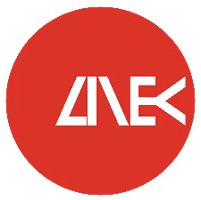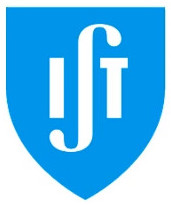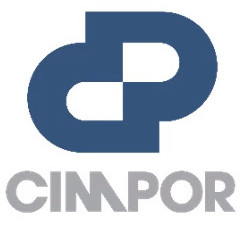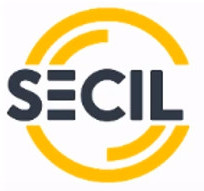The c5Lab makes use of a set of decentralized laboratories, which includes all the resources and equipments of the already existing laboratories, as part of an integrated network with complementary skills.

Laboratório Nacional de Engenharia Civil (LNEC)
Materials DepartmentThe Materials Department (DM) develops R&D&I activities in the areas as follows: characterisation, performance, development and application of building materials, in particular concrete and its components, hydraulic mortars, bituminous binders, plastics, composites of a polymeric matrix, organic coatings, metals, rock and ceramics; study of the degradation and conservation of materials in the built patrimony, particularly those integrated in the historical heritage. Furthermore, the Department provides support to construction industry by carrying out standardisation, regulation and certification activities.
DM is also equipped with high-level testing facilities, in support to R&D&I activities and to the execution of studies and expert reports under contract. The Department is also responsible for co-ordinating LNEC’s participation in the research infrastructure IPERION-CH.pt (Integrated Platform for the European Research Infrastructure ON Culture Heritage) on cultural heritage, which is part of FCT’s national Roadmap.
The Materials Department is organized into the four units as follows:
-
Concrete, Stone and Ceramics Unit
-
Organic Materials Unit
-
Metallic Materials Unit
-
Construction Quality Unit


IN+ Center for Innovation, Technology and Policy Research
IN+ is a cross-disciplinary research venue, acting to integrate scientific research in technology, innovation and public policy, striving to promote the sustainable application of science. Institutionally, IN+ operates at Técnico Lisboa and is a member of the associate laboratory LARSyS.
IN+ activities bring together researchers from various research areas, often called laboratories, who join efforts to achieve a sustainable society, by cooperating with industry and fostering a scientific culture in our spaces, fellows and communities.


Civil Engineering Research and Innovation for Sustainability – CERIS
CERIS is a research unit of IST-ID, The Association of Instituto Superior Técnico for Research and Development. IST-ID is a private not-for-profit institution, which primarily aims to undertake scientific and technological activities, fostering knowledge transfer and promoting the involvement of national and foreign researchers in RD&I and projects in their areas of expertise.
The mission and the objectives of CERIS address research, innovation and knowledge transfer needs in the following areas of the Built and Natural Environment sector: Product Development in Civil Engineering Industries; Risk and Safety in the Built and Natural Environment; Rehabilitation of Built and Natural Environments; Response to Natural and Societal Changes.

Centro de Recursos Naturais e Ambiente – CERENA
CERENA - Centro de Recursos Naturais e Ambiente was created in 2006, from the merging of three experienced research centres and groups of Instituto Superior Técnico that were developing separately their activities in the areas of natural resources and the environment.
CERENA's mission is to develop research at the highest level of excellence related to the sustainable use of natural resources, including energy, as well as their impact on the environment. CERENA uses an approach that is simultaneously integrative, multidisciplinary and multi-scale, from the molecular level to the planetary scale, where researchers from different scientific fields - earth, chemical and material engineering - converge towards the same objectives.


Centro de Química Estrutural – CQE
Centro de Química Estrutural (CQE) is a Research Unit of the University of Lisbon (ULisboa) with sites at Instituto Superior Técnico (IST) and Faculdade de Ciências (FCUL). It is the largest Research Unit of Chemistry of UL, covering a broad and interdisciplinary group of areas within the scope of Chemistry.
CQE general mission concerns the strengthening of the contribution of Chemistry to the welfare of Society through high-level Research, Development, Innovation, Transfer of Knowledge, Advanced Training and Teaching activities, building-up scientific and technological skills in both fundamental and oriented/applied research in science and engineering.


Nanostructured Materials and Nanotechnologies Laboratory – NanoMatLab
Opened to students and to the scientific community, the NanoMatLab is is a cross disciplinary educational and research facility, focused on advanced characterization of cementitious hydraulic binders, functional materials, biomaterials and biological materials at the nanometer scale, using scanning probe microscopy techniques.
The mission of NanoMatLab is to promote collaborative educational and research programs aiming to create a scientific stimulating environment with cutting edge infrastructures.

Laboratório Central Cimpor (LCC)
The aim of Cimpor's Central laboratory is to support the production process and the quality of products produced in CIMPOR's industrial units, belonging to the OYAK Group.
The Central Laboratory operates at an international level covering the following services:
-
Characterization of cements, their constituents and raw materials
-
Fuel characterization
-
Characterization of Aggregates and Concrete
-
Conducting tests on pastes, mortars and concrete
-
Studies (R&D)
In order to support the cement industry, it carries out various studies and research work.
The laboratory also provides laboratory services to other entities, in the areas of its competence and in compliance with the regulatory requirements and standards NP EN ISO / IEC 17025 and NP EN ISO 9001.

Laboratório Central Secil (LCS)
The Secil's Central laboratory accredited since 2011, focuses on the study and development of cement as a material, which enabled the launch of new innovative solutions and the development of potential markets.
In order to provide a customer support structure to solve technical problems associated with the characteristics of concrete and the development of new cement products, the laboratory was established in 2007 to continue the former Concretes Laboratory, which was set up at the Outão plant over 20 years ago.
With the inauguration of Secil's Central laboratory it has been possible to focus on the study and development of cement as a material, which enabled the launch of new innovative solutions and the development of potential markets.
Currently, is responsible for coordinating R&D for the SECIL Group, being a reference for the construction industry as a synonym for knowledge and innovation. In this context, some projects are currently underway, funded by the NSRF (BETHERM; Invisible Network and ENERGREEN).
Copyright © 2025 C5Lab

